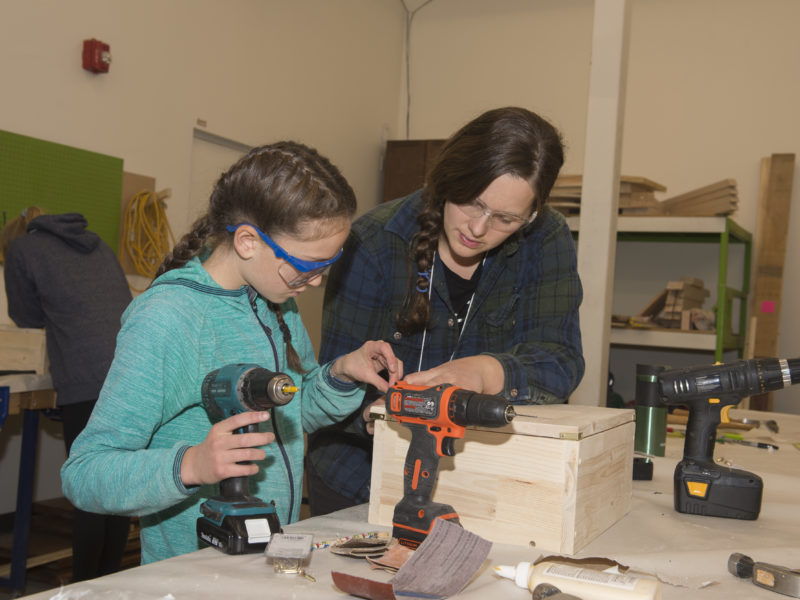Project Insights Report
Facilitating Access to Skilled Talent
 Executive Summary
Executive Summary
Canada’s aging population and growing labour shortages have made immigration critical to sustaining the country’s workforce. However, many immigrants face barriers to finding meaningful employment that matches their skills and experience, often due to unrecognized credentials, a lack of professional networks, and unfamiliarity with Canadian workplace culture. The Immigrant Employment Council of British Columbia’s Facilitating Access to Skilled Talent (FAST) program addresses these challenges by offering free, online, sector-specific employment preparation for newcomers in Canada. FAST helps participants build job readiness, navigate Canadian workplace culture and connect with credentialing resources. The program features six sectoral streams ranging from information technology (IT) to seniors care.
Since expanding Canada-wide, FAST has partnered with service providers and employers across the country, enrolling over 1,500 participants. While program completion rates remain a challenge, employment outcomes are promising, with job rates rising from 45% at program exit to 72% nine months later. Participants identified workplace culture training as the program’s most valuable feature. Moving forward, FAST will build on its success, collaborating with employers, educators and policymakers to inform policies that better integrate skilled immigrants into the Canadian workforce.
Key Insights
Immigrants who participated in the FAST program experienced increased employment rates. At program completion, 45% were employed. Nine months post-program, 72% were employed and earnings had increased by 25%.
The majority of FAST participants are landed immigrants, highly educated and racialized.
Workplace culture training was one of the most useful program components for supporting participants’ job searches.
 The Issue
The Issue
With Canada’s aging population, immigration is critical to alleviating widespread labour shortages across many sectors. Canada is one of the top destinations in the world for immigrants. Once immigrants arrive, however, they face significant barriers to utilizing the skills and experiences that allowed them to immigrate in the first place.Immigrants in Canada face challenges finding meaningful employment. Key barriers that many immigrants cite include a lack of professional connections, employers not accepting qualifications and experience, or international education not being recognized. Certain groups of immigrants face more barriers than others: women, older immigrants and those without previous education or work experience in Canada have lower employment rates.
When newcomers do find employment in Canada, it is often not commensurate with their prior experience, education and expertise. In one large-scale survey, employment rates for immigrants actually declined as years of international experience increased, and at each successive degree level, with rates of employment higher for those with college diplomas than for those with doctorates. Many immigrants change work sectors post-migration, with less than half working in the same sector as they were pre-migration (though most would have preferred to stay in the same sector) and far fewer working in management positions.
The intent of Canada’s immigration policy is to ensure the country has the workers it needs to fill critical labour market gaps and support a strong economy. To realize this intention, there is a need for initiatives that help support immigrants to leverage their skills and fully integrate into the Canadian economy.

 What We Investigated
What We Investigated
Facilitating Access to Skilled Talent (FAST) is a program designed by the Immigrant Employment Council of British Columbia to prepare immigrants for their careers in Canada. FAST’s objective is to increase the employment readiness of newcomers and improve their confidence to enter their industries of interest.
FAST is a free-to-use, self-paced, online employment preparation program that helps immigrants better understand their target occupation and industry along with broader workplace culture. FAST has six sectoral streams: IT and data services; biotechnology and life sciences; skilled trades; accounting and finance; culinary arts; and seniors care.
Each sectoral stream includes industry-specific content on workplace culture and workplace readiness assessments; technical competencies; referrals to credentialing services and professional designations, where appropriate; and job search and career navigation supports. The combination of industry-specific assessments and online modules that orient users to Canadian workplace norms and culture set users on a pathway to receive an industry designation or access further learning to improve employability.
The original aim of this project was to expand the pre-existing FAST online portal to provinces outside of BC to be used with immigrants ahead of their arrival in Canada. However, travel restrictions brought on by the COVID-19 pandemic meant that very few immigrants were en route to Canada at that time. The project sought to expand its reach instead by collaborating with like-minded, values-aligned immigrant-serving organizations across Canada. The project provided training, communications and marketing materials that supported these service providers to include FAST as part of the services they were providing to immigrants who had already arrived in Canada.
Phase Two of FAST sought to evaluate participant experiences, program outcomes and areas for refinement to inform future iterations.
Specifically, this phase of the project assessed 1) how the program supported employment outcomes, 2) the variations in satisfaction and results across different streams and 3) opportunities to enhance participant engagement and program delivery. The evaluation used a mixed-methods approach, combining quantitative data from administrative records and participant surveys with qualitative insights from interviews with participants, service delivery partners and industry. This multi-faceted methodology provided a comprehensive understanding of FAST’s impact while identifying key challenges to address in Phase Three.
 What We’re Learning
What We’re Learning
The first program expansion of FAST enlisted 81 service delivery partners, 17 employer partners and 5 industry associations across Canada to integrate FAST into their own service offerings. As a result of this engagement, 565 participants enrolled in FAST between September 2021 and June 2022 (in addition to the 646 that were included in the previous cohort, bringing the total to 1,211). The majority of participants came from Ontario (34%), Nova Scotia (26%) and British Columbia (17%).
Only 4% of FAST users were not in Canada, reflecting the pivot toward focusing on landed immigrants rather than pre-arrival supports. Similar to previous cohorts, the majority of FAST participants during this period were landed immigrants (86%), highly educated and racialized (66%). Most of the participants were enrolled in just two of the sectoral streams: 50% in IT and data services and 29% in biotech and life sciences. The relatively newer sectoral streams saw lower enrolment: 14% in accounting and finance and only 1% in culinary arts.
During this cohort, only 23% of participants completed the full FAST program, with most participants choosing to engage with only a selection of program modules. This is a decrease in completion rates, down from 37.9%, compared to the previous cohort enrolled between November 2019 and March 2021. Participants in biotech and life sciences were more likely to complete FAST than those in other sectoral streams. The skilled trades and seniors care streams experienced lower satisfaction and completion rates due to misaligned expectations or overly technical content. Across sectoral streams, respondents reported that workplace culture training was the most useful program component for supporting their job search. The training included information about non-verbal communication, culture shock and sector-specific professional language. Participants highlighted the need for clearer communication about FAST’s offerings and greater support during the program.
During Phase Two, FAST successfully reached a highly educated and diverse cohort of newcomers, with 83% identifying as racialized and 85% balancing caregiving responsibilities. The program’s employment outcomes were encouraging, with employment rates increasing from 45% at the program’s end to 72% nine months later. Participants reported higher confidence in their job readiness and found the workplace culture training particularly useful, with 77% rating it as very or somewhat helpful. Despite these successes, the program faced challenges in engagement and completion, with a 21% overall completion rate.
 Why It Matters
Why It Matters
Despite recent changes in immigration levels, Canada will continue to rely on immigration to address labour and skills shortages due to its aging population and low birth rates.
The findings demonstrate that programs like FAST are critical for addressing labour shortages by helping skilled immigrants integrate into the workforce and align their expertise with Canadian standards.
The program’s success highlights the value of accessible, low-barrier interventions that combine sector-specific skills assessments with workplace cultural training. Most participants in FAST valued the Canadian workplace culture training, calling it the most useful component of the program. This further reinforces the need for this type of information to be included in all workforce initiatives targeting newcomers, both prior to their arrival and after they’ve arrived. A lack of familiarity with Canadian workplace culture can lead to intercultural bottlenecks between employers and newcomers that impede open and forthright communication, leading to vicious cycles that reinforce the barriers that keep newcomers from reaching their full potential.

State of Skills:
What Works for Newcomer Integration
Industry-specific, employer-driven initiatives have been successful in accelerating and enhancing the employment prospects of newcomers. The collaborative approach of engaging with employers directly improved the relevance of the training and curriculum delivered and facilitated connections between employers and newcomers post-training.
Lessons from FAST Phase Two can inform broader policy and practice by emphasizing the importance of flexible, scalable solutions that respond to regional labour market needs and reduce systemic barriers for immigrants.
 What’s Next
What’s Next
The Immigrant Employment Council of British Columbia continues to implement and iterate FAST. In Phase Three, the organization plans to introduce several innovations to improve engagement and outcomes. These include piloting a time-bound model to encourage higher completion rates, launching a cohort-based approach to foster peer connections, and expanding eligibility criteria to include international students and temporary workers. Additionally, the employment council will collaborate with stakeholders in New Brunswick to develop a bilingual FAST-NB platform tailored to the province’s labor market needs.
These adaptations aim to enhance program relevance and utility while building on the successes of Phase Two.
The Immigrant Employment Council of British Columbia is also hosting virtual and in-person forums throughout 2025 to bring together employers, professional associations, schools and government organizations from across Canada to discuss and create practical, region-specific and sector-specific solutions for emerging skills gaps.
Have questions about our work? Do you need access to a report in English or French? Please contact communications@fsc-ccf.ca.
More from FSC
ArtWorksTO
Doing It Right
Quality of Work: Literature Review
How to Cite This Report
Dark, G. (2024). Project Insights Report: Facilitating Access to Skilled Talent (FAST), Immigrant Employment Council of British Columbia. Toronto: Future Skills Centre. https://fsc-ccf.ca/projects/fast/
Facilitating Access to Skilled Talent is funded by the Government of Canada’s Future Skills Program. The opinions and interpretations in this publication are those of the author and do not necessarily reflect those of the Government of Canada.




